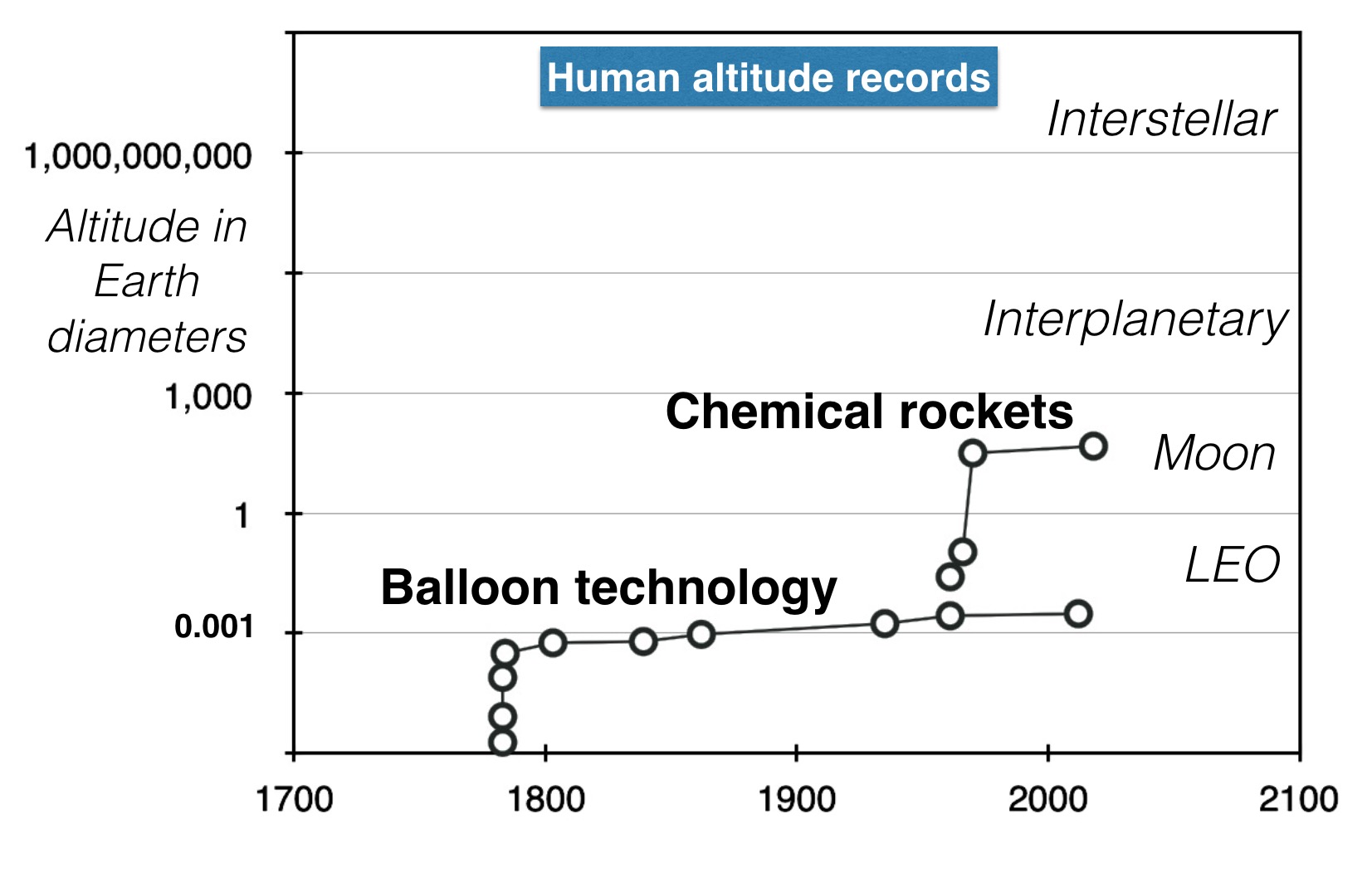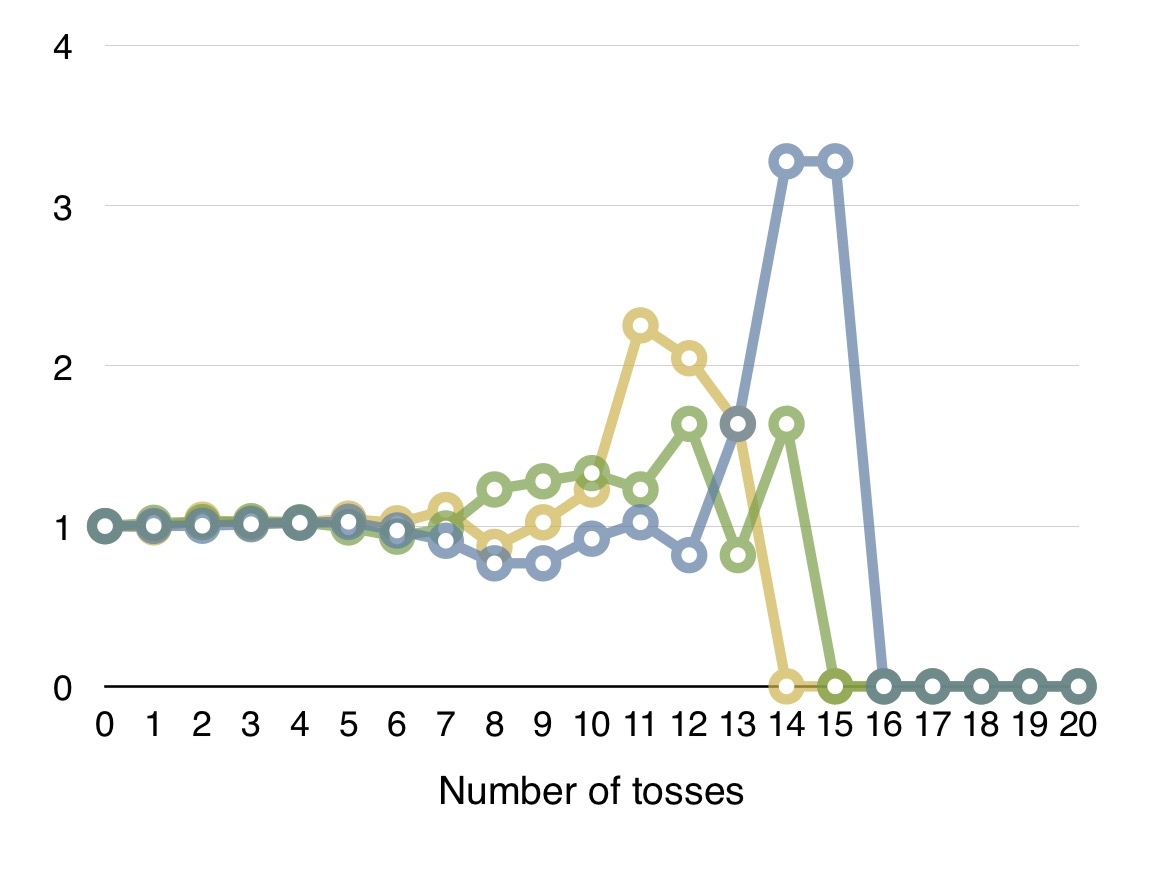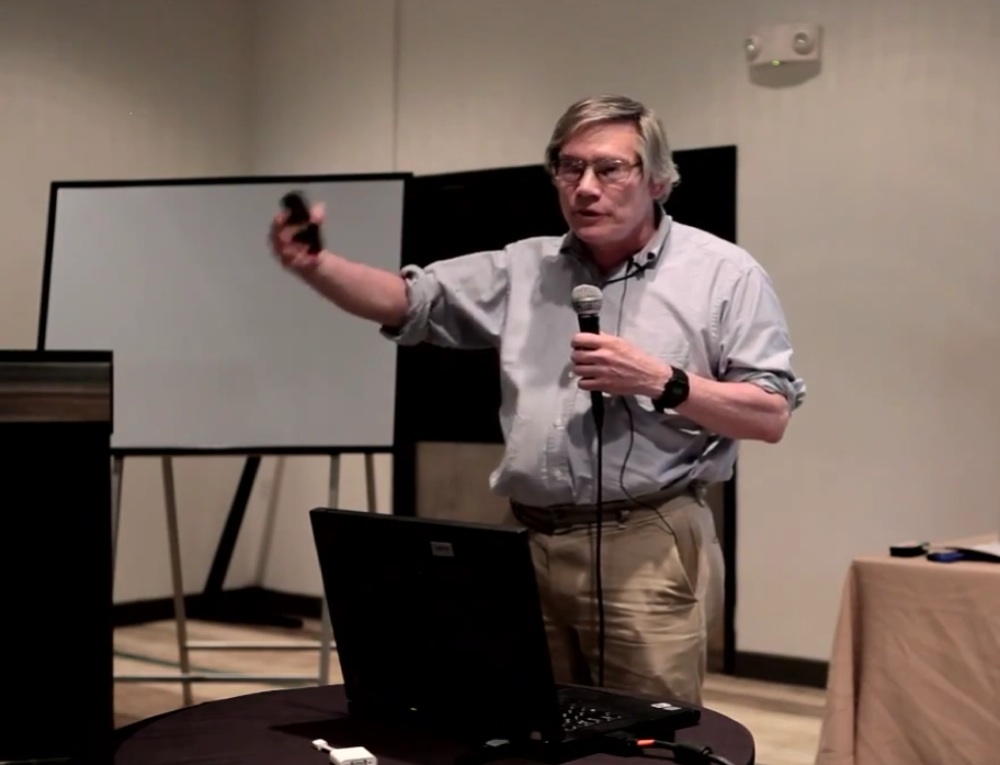September 14th 2015, 09:50 GMT. A far spread out distortion of space crossed earth's path. The distortion had traveled at the speed of light for more than a billion years, all along the way spreading out spherically and diluting its energy density inversely proportional to the spherical area covered. Still, when distorting the space occupied by earth, it did so with a peak power equal to the total electrical power consumption of human mankind.
Earth responded by undulating, expanding in one direction, shrinking in a perpendicular direction, and then reversing. And reversing. The frequency of undulation increased like a coin wobbling on a table top. And then suddenly, like a wobbling coin coming to rest, space became quiet again, and earth's shape stabilized.
Science is what scientist do. And the scientific method is the method scientists follow. A tautology you say? Not according to George Ellis and Joe Silk. In an opinion paper in
Nature under the title
'Scientific method: Defend the integrity of physics' Ellis and Silk argue that string theorists and cosmologists contributing to inflationary cosmology are rapidly turning physics into
"a no-man's-land between mathematics, physics and philosophy that does not truly meet the requirements of any". The two authors play the 'testability card' and claim the high ground of scientific integrity, thereby dismissing a vast body of contemporary science as unscientific.
Our universe is eternal, expanding indefinitely, and not threatened by any form of 'heath death'. All evidence points into this direction. In fact, at the end of the nineteenth century Ludwig Boltzmann had collected all the evidence to draw such conclusions. His consistent reasoning on how to render the reversible laws of physics compatible with the second law of thermodynamics brought him close, but he failed to make the final decisive steps.
Ok, I realize that at Boltzmann's time our knowledge of the universe didn't stretch beyond the Milky Way, the island of stars that we inhabit. And yes, I admit reasoning here with the benefit of a heap of hindsight. But even now, in the twenty-first century, this hindsight is apparently not distributed uniformly.
An infinite number of mathematicians walk into a bar. The first mathematician orders a beer. The second orders two beers. The next orders four. Followed by the next who orders eight. The bartender interrupts them: "ok guys, cut the crap: you owe me one beer". ---------------------------------------------
A recently posted
Numberphile video is heading towards 2 million hits on YouTube. That is an impressive score for a video focusing on a math subject. The two physicists in the video try to convince the viewer that all positive integers add up to -1/12. Yes, you read that correctly: these damn physicists dare to argue that 1 + 2 + 3 + 4 + ... = -1/12.
In 1937, Dirac made the bold conjecture that since the big bang, gravity has been weakening. The cold reception that greeted his highly speculative and numerology-based cosmology paper didn't seem to hurt him much. This was a decade after Dirac discovered the quantum relativistic equation for the electron, and his mega-stardom status could take a few hits without getting eroded significantly. Still, during the rest of his productive life, Dirac stayed away from cosmology and shrinking gravity models.
You have decided to start a graduate study in physics. Where should you apply? And how to decide which offer to take?
A diarrhea of lists attempt to rank "the world’s best universities". Mostly these lists are based on some aggregate of different metrics. Yet, for a postgraduate degree your focus should be on one and only one metric: you want to surround yourself with the best brains. If you're good, the place to hone your skills is there where you get the opportunity to learn from the best. There where you can join those that are making impact in their field of research.
What are the high-impact universities in physics?
 Why SpaceX Won't Turn Us Into A Multi-planetary Species
Why SpaceX Won't Turn Us Into A Multi-planetary Species  Rational Suckers
Rational Suckers Triple Or Bust: Paradox Resolved
Triple Or Bust: Paradox Resolved










